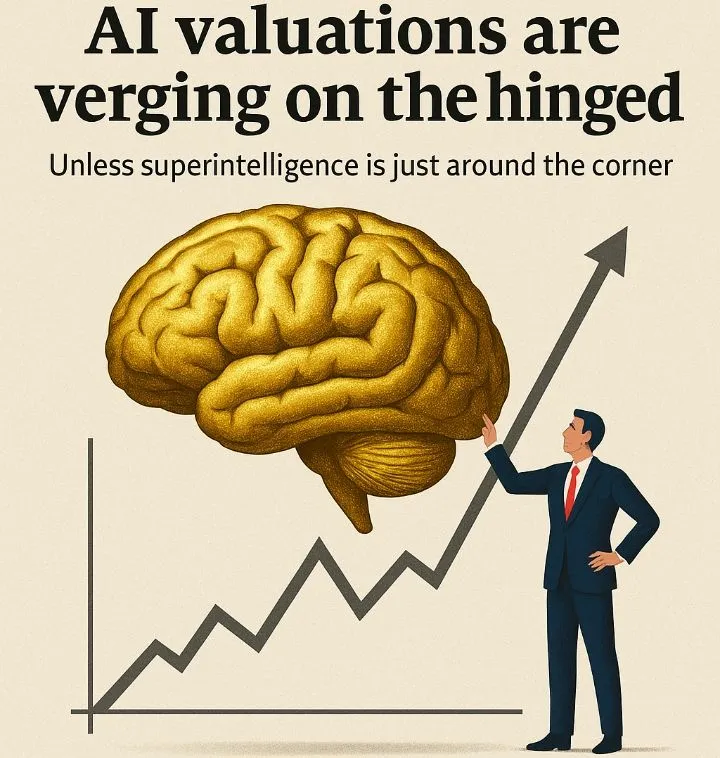
Once upon a time, startups had to show something concrete to raise money for example a working product, maybe some traction, or perhaps even revenue. But Not anymore.
Now, venture capitalists are betting on vibes. Not data. Not spreadsheets. Just vibes. placing jaw-dropping valuations on AI startups based on nothing more than potential, and the charisma of their founders.
It’s the investment version of buying a house without looking inside. The location is hot, the architecture looks cool, and someone whispered that it might be the next Google so boom, you write the check.
Take Mira Murati, for example. Once the Chief Technology Officer at OpenAI, she is now the founder of Thinking Machines Lab, an AI company that at the time of writing has raised $2 billion at a $10 billion valuation.
This happened before it laid out a proper business strategy. Or made a single dollar in revenue.
How did that happen? She was at the center of the AI revolution. She’s credible. She’s ambitious. She has the right network. And more than anything, her vibe says she knows where the future is headed.
This is a far cry from the cautious optimism that once defined tech investing. We are now in a full-blown gold rush, where the product doesn’t matter as much as the promise.
the idea that you can use AI to build software without traditional programming skills is exploding. And with it comes the twin phenomenon Venture capitalist who fund ideas with abandon, hoping they’ve backed the next god-tier founder.
We’re not just seeing this in Silicon Valley either. It’s happening across the globe. In AI, crypto, climate tech you name it. If the energy around a company feels right, if it looks like it could go viral or disrupt an industry, the money flows.
Now comes the sober question: What happens if superintelligence doesn’t arrive next year? What if the code doesn’t scale? What if all these "thinking machines" don’t end up thinking any better than a slightly advanced calculator?
The danger isn’t just overvaluation it is disillusionment. If too many of these moonshot startups crash without ever lifting off, the whole ecosystem could suffer. It happened during the dot-com bubble. It could happen again.
And let’s be honest not every founder is a genius, and not every big valuation is justified. Sometimes, a billion-dollar startup is just a guy in a hoodie with a ChatGPT plugin and a really good pitch deck.
For now, the vibe economy rewards optimism. If you’re a founder with a big idea, the moment is yours. If you’re a Venture capitalist, you're betting on the future blindfolded, but with a sixth sense for hype.
But for everyone else workers, customers, even regulators it’s a wait-and-see game. Will the AI boom reshape industries, or just make a few people obscenely rich before reality kicks in?
Only time will tell.